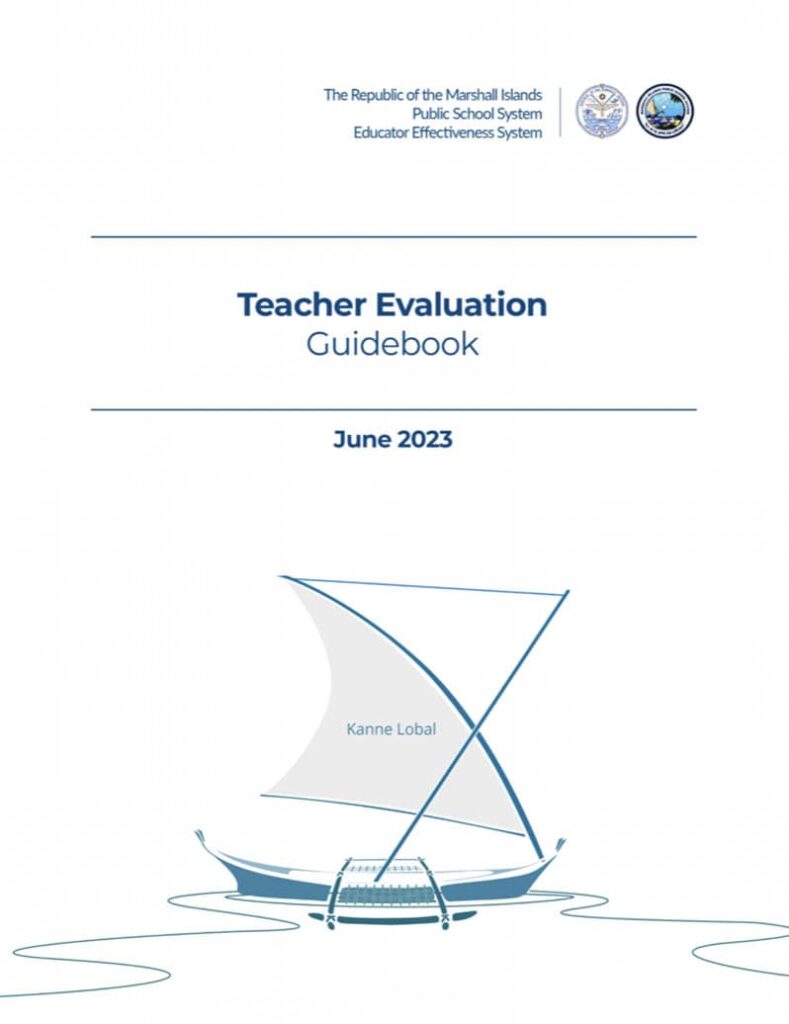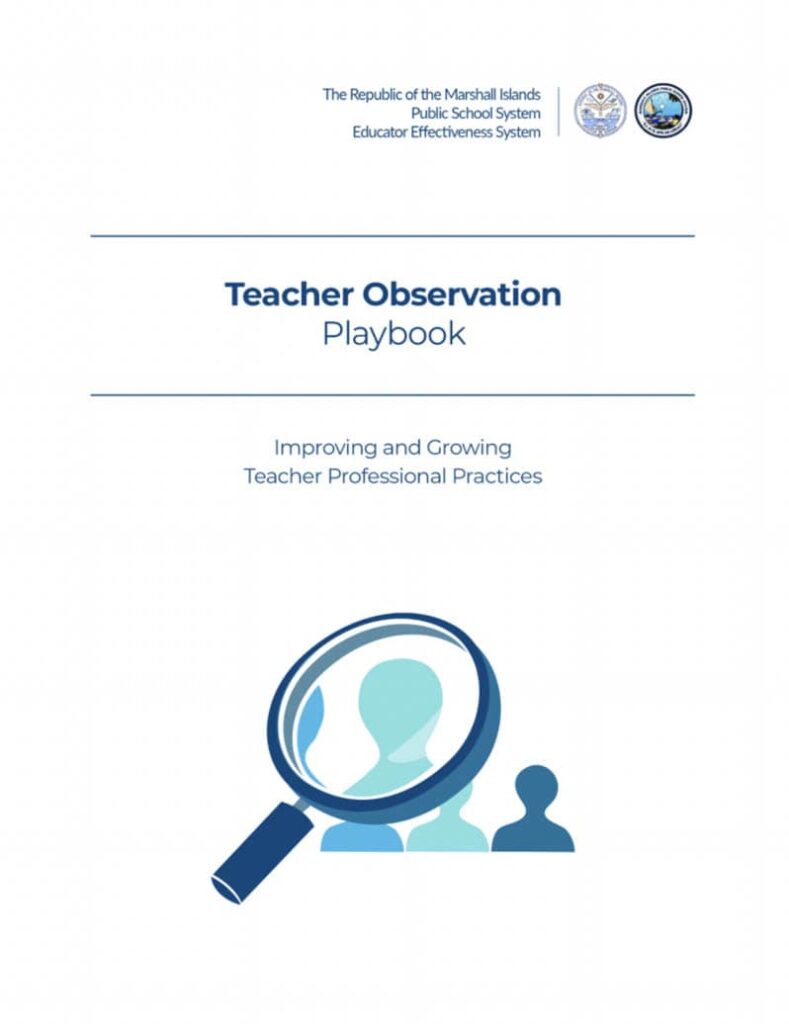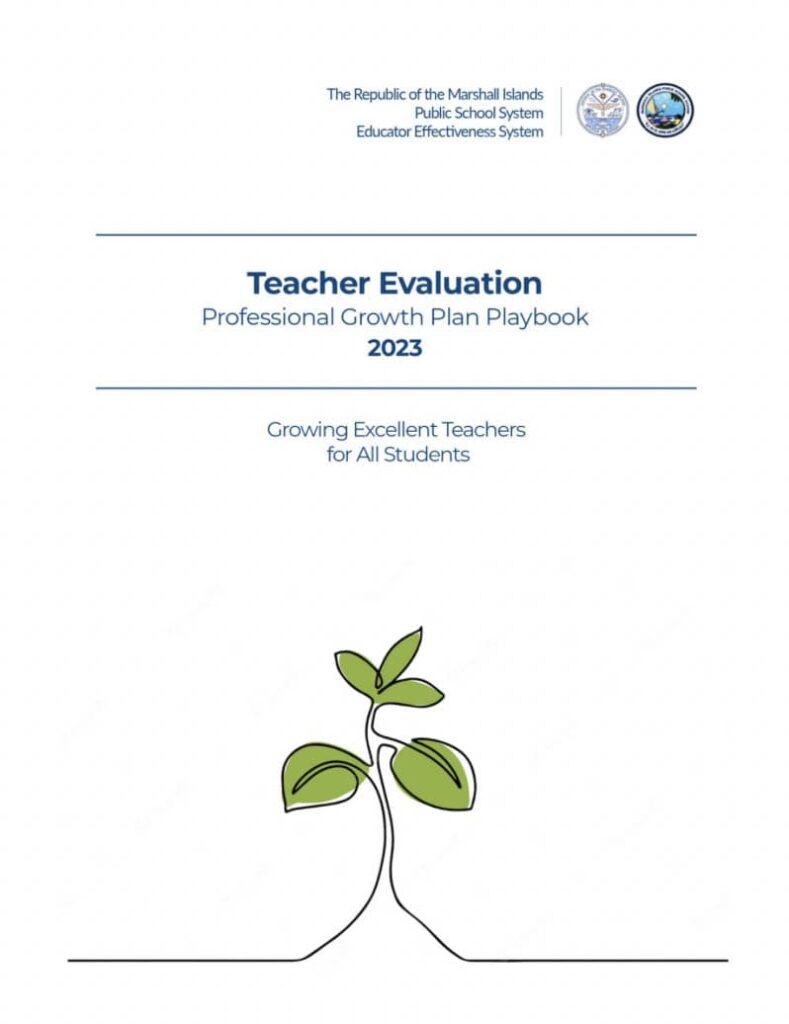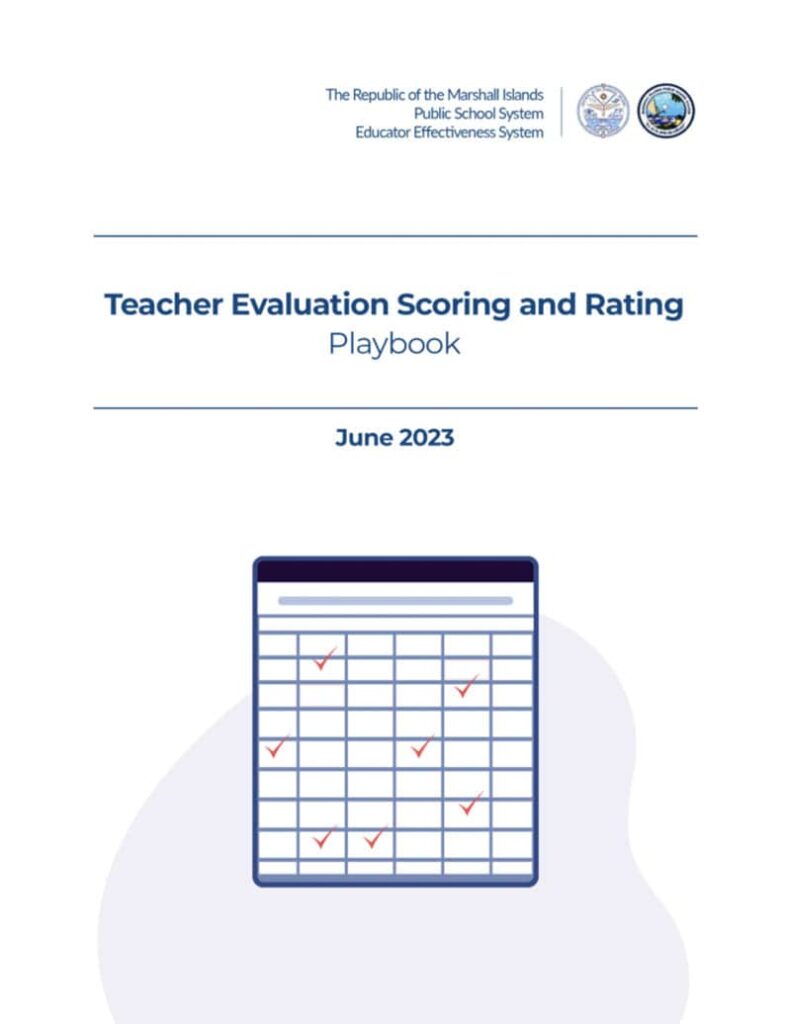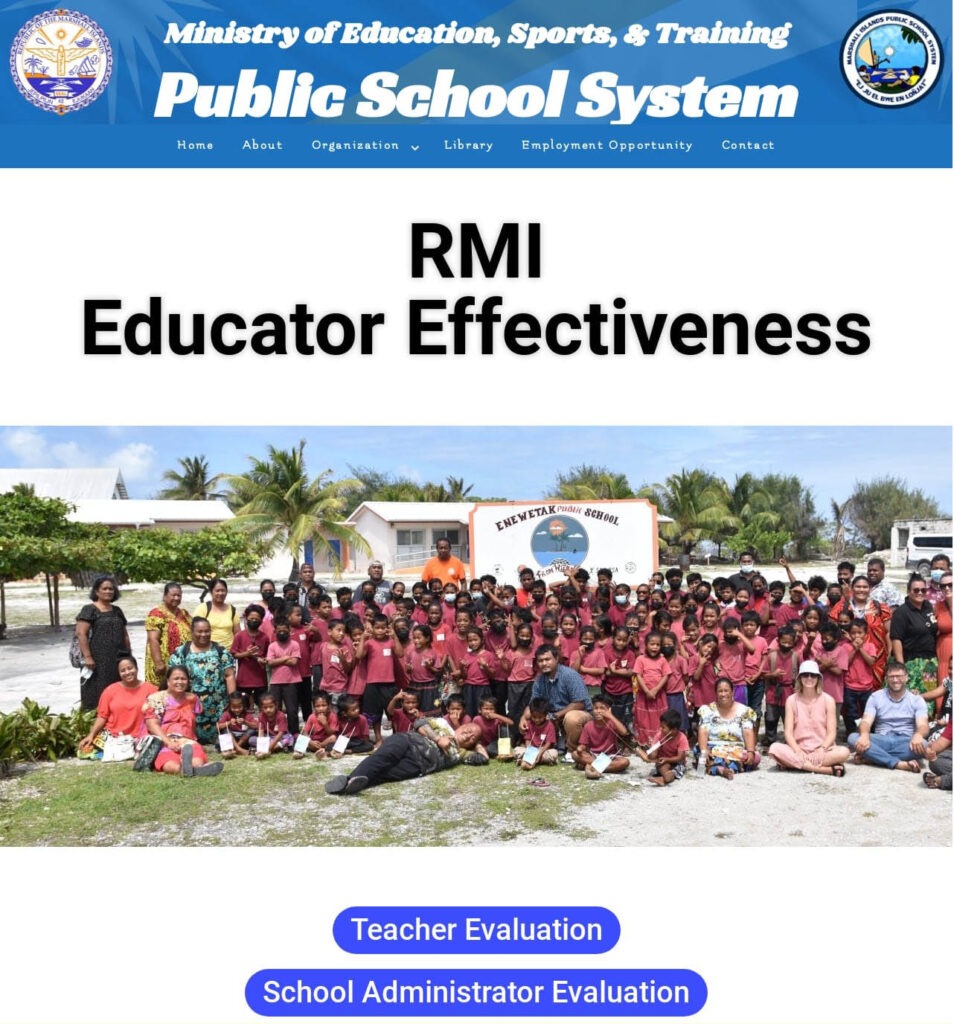December 11, 2023
Designing and Implementing a Collaborative Learning-Focused Educator Effectiveness System in the Republic of the Marshall Islands
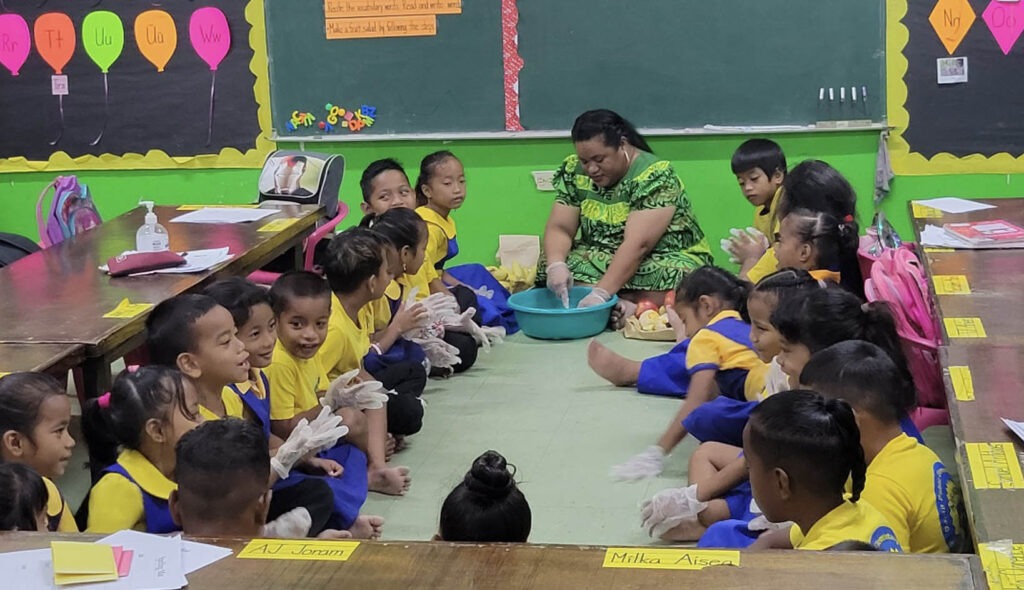
With the strong belief that every student should have access to high-quality educators who have the tools and resources they need to continually improve and reflect on their practice, the RMI Public School System (RMI PSS) and Teacher Standards and Licensing Board (TSLB), through partnership with the Region 19 Comprehensive Center (R19CC), created a new Educator Effectiveness System that aligns licensing procedures, professional standards, and evaluation processes. This new system is designed to: advance RMI PSS’s goals of ensuring equitable access to effective teachers and leaders; provide all educators with the resources and support they need as they move through their career and become leaders within their schools and communities; and use data to guide professional development and improve instructional practices in ways that serve all students.
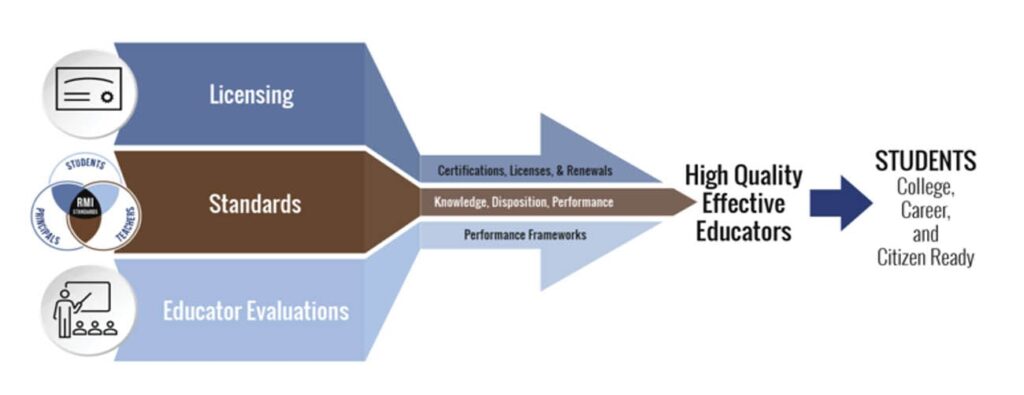
This systems approach purposefully links the RMI Education Sector Plan, World Bank RMI Education and Skills Strengthening Project, and the Improving Quality of Basic Education in the North Pacific Project with evidence-based and culturally sustaining teacher and school administrator evaluation processes. It is also reflective of RMI’s unique geography, which consists of 29 atolls and five individual islands. RMI covers an area of 1.9 million km2 (around the size of Mexico) but has just 181 km2 in land area (around the size of Washington, DC). With 87 public schools, 43 of which are rural schools in the outlying atolls, growing and sustaining their own excellent teachers is a critical aspect of the new Educator Effectiveness System and a key priority for RMI PSS.
In designing the new Educator Effectiveness System, RMI PSS first focused on the teacher evaluation process, which now consists of formal and informal observations tied to a professional growth plan. Together, RMI PSS and R19CC co-created tools and resources for the Educator Effectiveness System, including a guidebook and three quick references or playbooks that intertwine cultural nuance with the evaluation process.
To aid rural and remote educator and administrator access to Educator Effectiveness System tools and guidance materials, a webpage was co-designed to provide a one-stop destination for teachers and school administrators.
To build a robust understanding of the new System and administrator competencies, RMI PSS Specialists partnered with R19CC staff to design and deliver guided virtual and onsite trainings, and coaching on the new teacher evaluation process. Trainings and coaching were conducted in English and Marshallese on Majuro, Ebeye, Ailinglaplap, Jaluit, and Wotje. Teachers also analyzed and discussed the RMI PSS Teacher Standards alongside the Framework for Teaching (Danielson, 2013) and the Framework for Remote Teaching (The Danielson Group, 2020), as well as the Quality Pedagogy Framework (QPF), new educator effectiveness guidebooks, and associated tools.
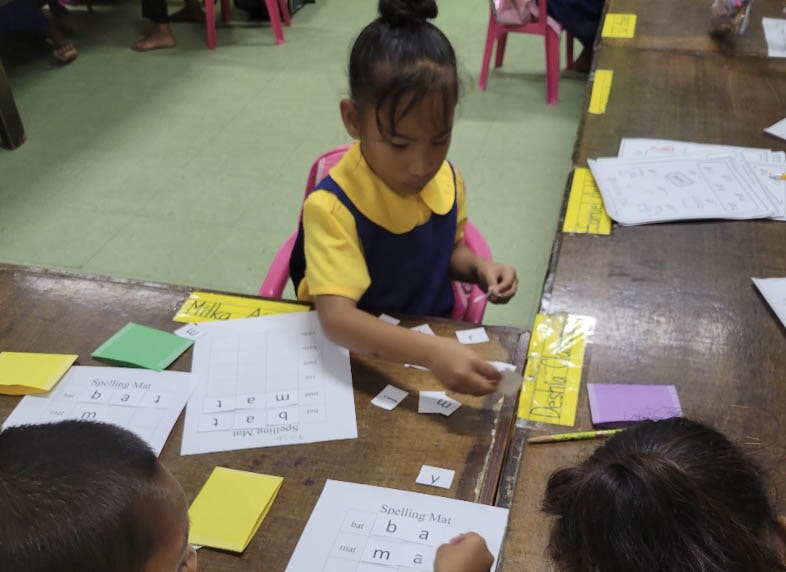
The most useful thing about the sessions was alignment with the Teachers Standards to Teacher Goals, School-wide Goals—and designing lessons using the QPF with Danielson’s domains were the most useful things I learned.
—Participating Teacher
Understanding that school leaders often lack training and expertise in how to use evaluation findings to guide teachers towards professional growth (Goe et al., 2012), RMI PSS purposefully included school administrators in the trainings. Supplemental coaching was then provided to school administrators on how to plan for observation, collect evidence during a teacher evaluation, use evidence to determine ratings on effective practices, and provide detailed feedback and guidance to teachers.
I learned a lot about from the practice and shadowing the process… I especially learned that I can look for what I see that is good teaching and with the help of the scoring rubrics, I was able to know I gave the right score… I love that this is done by teamwork. It helped my learning process. I am learning and getting more comfortable with my observation skills and better able to support my teachers’ growth.
—Barbara Ned, Principal
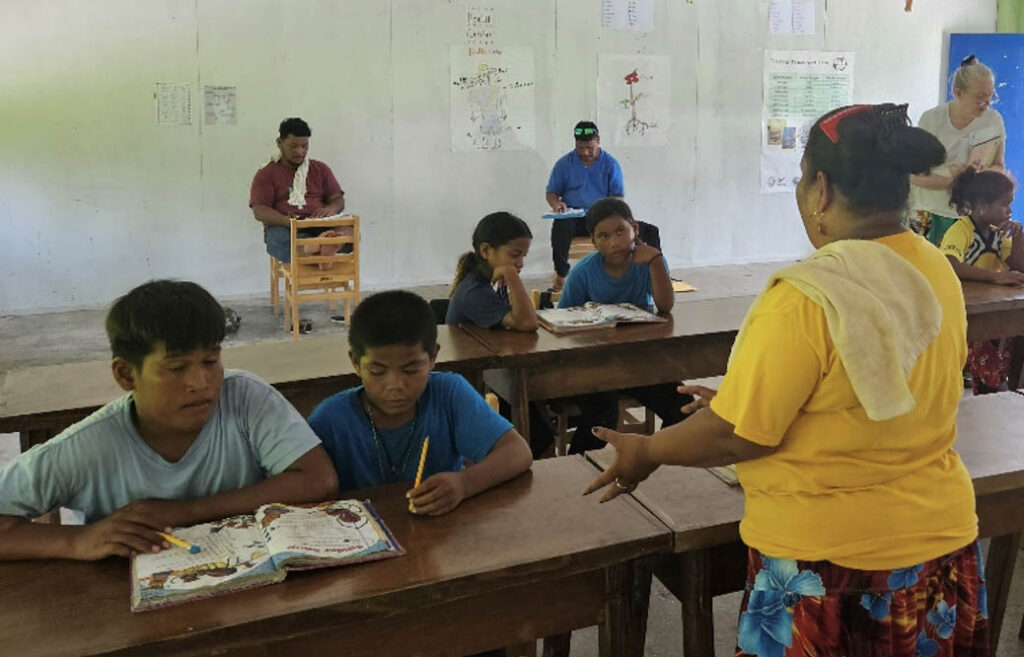
The RMI PSS and R19CC are especially excited that trainings and coaching were extended to outlying atoll schools. All too often training for educators on the neighbor atolls is only offered in Majuro during the summer months, requiring participants from neighboring atolls to engage in costly air or water travel, or rely on virtual trainings that necessitate an internet connection, which is frequently unstable. The R19CC staff teamed with RMI PSS staff and school administrators to provide a team approach to coaching on the outer atolls. Teachers volunteered to be observed by their principal or head teacher and the RMI PSS-R19CC Team. The observers then met and discussed the evidence collected using a scoring rubric. R19CC then modeled the feedback process and provided suggestions and potential strategies to the teachers. Observations were then written by RMI PSS staff with coaching from the R19CC to build their capacity to support school administrators implementing the teacher evaluation process.

I now know how to talk with teachers about their observations. I know how to support teachers growth and improvement.
—Head Teacher, Ailinglaplap Atoll
I love the idea of bringing workshops to school sites. Especially, a Consultant visiting and helping at my school. Very Awesome!
—Principal, Jaluit Atoll
Moving forward, the RMI PSS will focus on training and coaching school administrators and supervisors on the newly designed school administrator evaluation process. The continuous improvement of professional practice by both teachers and school administrators is just one part of the RMI PSS efforts to strengthen instruction to increase student learning. R19CC looks forward to continued partnership with RMI PSS as teachers and leaders work to strengthen instructional practice and ensure opportunity for all students.
References
- Danielson, C. (2013). The Framework for Teaching: Evaluation Instrument. Princeton, NJ; The Danielson Group.
- The Danielson Group. (2020). Framework for Remote Teaching. The Danielson Group.
- Goe, L., Biggers, K., & Croft, A. (2012). Linking Teacher Evaluation to Professional Development: Focusing on Improving Teaching and Learning (Research & Policy Brief). Washington, DC: National Comprehensive Center for Teacher Quality.
- Opper, I. M. (2019). Teachers Matter: Understanding Teacher Impact on Student Achievement. Rand Corporation.


